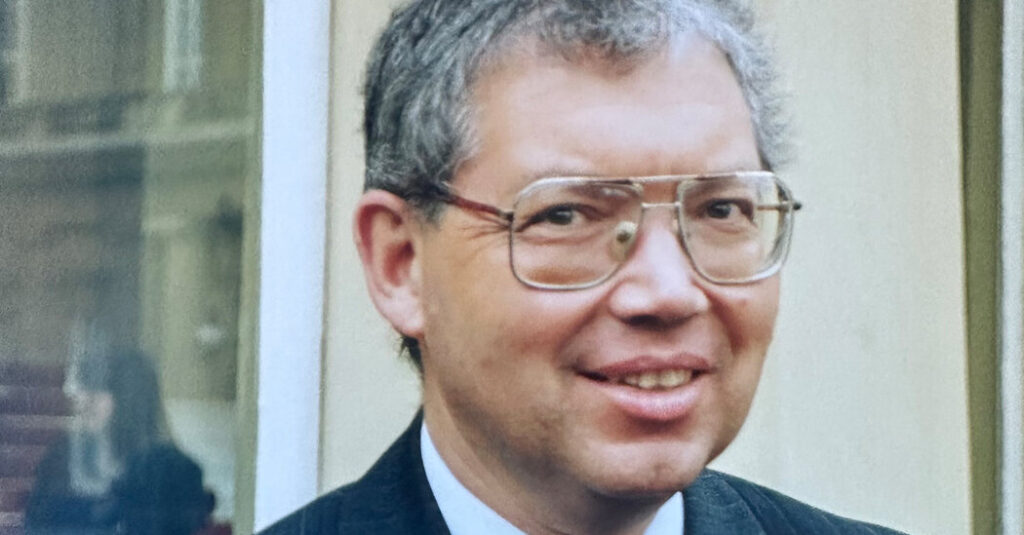Edward Countryman, a historian whose wide-ranging studies of the various groups — politicians, laborers, Native Americans and more — at work during the American Revolution helped usher in a more complex understanding of the nation’s founding, died on March 24 in Dallas. He was 80.
His daughters, Karon Ornadel and Kirstein Powell, confirmed the death but did not say what the cause was or where in Dallas he died.
Professor Countryman began his career in the 1970s as part of what was known as the neo-progressive school, which focused on the social and economic factors that drove historical change.
Influenced by the British labor historian E.P. Thompson, with whom he worked at the University of Warwick in England, Professor Countryman wrote history from the bottom up, examining the way everyday people made decisions that, collectively, affected the course of events — what came to be known as the new social history.
He promoted the idea that the American Revolution was about much more than just achieving independence from the British: It was, he claimed, a social revolution, with elites forced to give ground to the working and farming classes.
“Ed’s work was very much part of the move toward integrating political and institutional and new social history,” Kate Haulman, a historian at American University in Washington who studied with Professor Countryman, said in an interview.
His research was multidirectional, examining not just bottom-up history but top-down political history as well. In his work, elites and workers jostled for influence alongside once-excluded groups like women, Native Americans and Black Americans, who found that the revolution had given them opportunities to influence the emerging social order — “a collision of histories,” he liked to say.
“He showed me how one could be interested in history from the bottom up, in classes and crowds, and still be interested in nations and nation-building,” said David Waldstreicher, a historian at the City University of New York Graduate Center, who studied with Professor Countryman at Yale.
Professor Countryman’s first book, “A People in Revolution: The American Revolution and Political Society in New York, 1760-1790,” won the Bancroft Prize, one of the highest honors in history writing, in 1981. He followed that with “Americans: A Collision of Histories” (1996), which is still widely considered a canonical work of revolutionary-era studies.
Fluid and engaging, his books and essays appeared frequently on reading lists at both the graduate and undergraduate levels, an indication that his love of teaching and mentorship was almost as strong as his love of research.
Professor Countryman emphasized not just the complexity of revolutionary American society but also its vastness, pulling in interior regions and frontiers long ignored by historians focused on the elites and urban society.
That flexibility allowed him to remain influential long after new generations of historians had shifted the focus to other areas, including women’s and African American history. His work made room for a wide variety of people and groups; there was no single “American” type, he liked to say, but instead a multitude of Americans.
“He had a great appreciation for humans, and what’s important to humans, which was pretty flexible,” said Katherine Carté, a historian who worked with Professor Countryman at Southern Methodist University in Dallas, where he taught for the past 30 years. “He wasn’t wedded to a particular ideological position.”
Edward Francis Countryman Jr. was born on July 31, 1944, in Glens Falls, N.Y., an industrial city north of Albany. His father worked in education for the state, while his mother, Agnes (Alford) Countryman, managed the home.
He received a bachelor’s degree in history from Manhattan College (now Manhattan University) in 1966 and a doctorate in history from Cornell in 1971.
Professor Countryman spent his early career outside the United States — first at the University of Canterbury, in Christchurch, New Zealand, and then at the University of Warwick and the University of Cambridge in Britain.
After serving as a visiting professor at Yale, he moved to Southern Methodist University in 1991 and remained there until he retired in 2022.
Professor Countryman’s first marriage ended in divorce. Along with his daughters, he is survived by his wife, Evonne von Heussen-Countryman; a son from his first marriage, Samuel; a sister, Judy Fournier; and six grandchildren.
Professor Countryman never adhered to a particular historical interpretation of the American Revolution — in part, he said, because the meaning of the revolution was disputed even at the time.
“The aftermath of independence saw half-literate farmers, angry politicians, sophisticated intellectuals and loyalist exiles all writing down their versions of what they had lived through,” he wrote in a 1983 essay for the British Association for American Studies. “Yet for all that they had shared in its events, these men and women could not agree on what the Revolution had been.”



